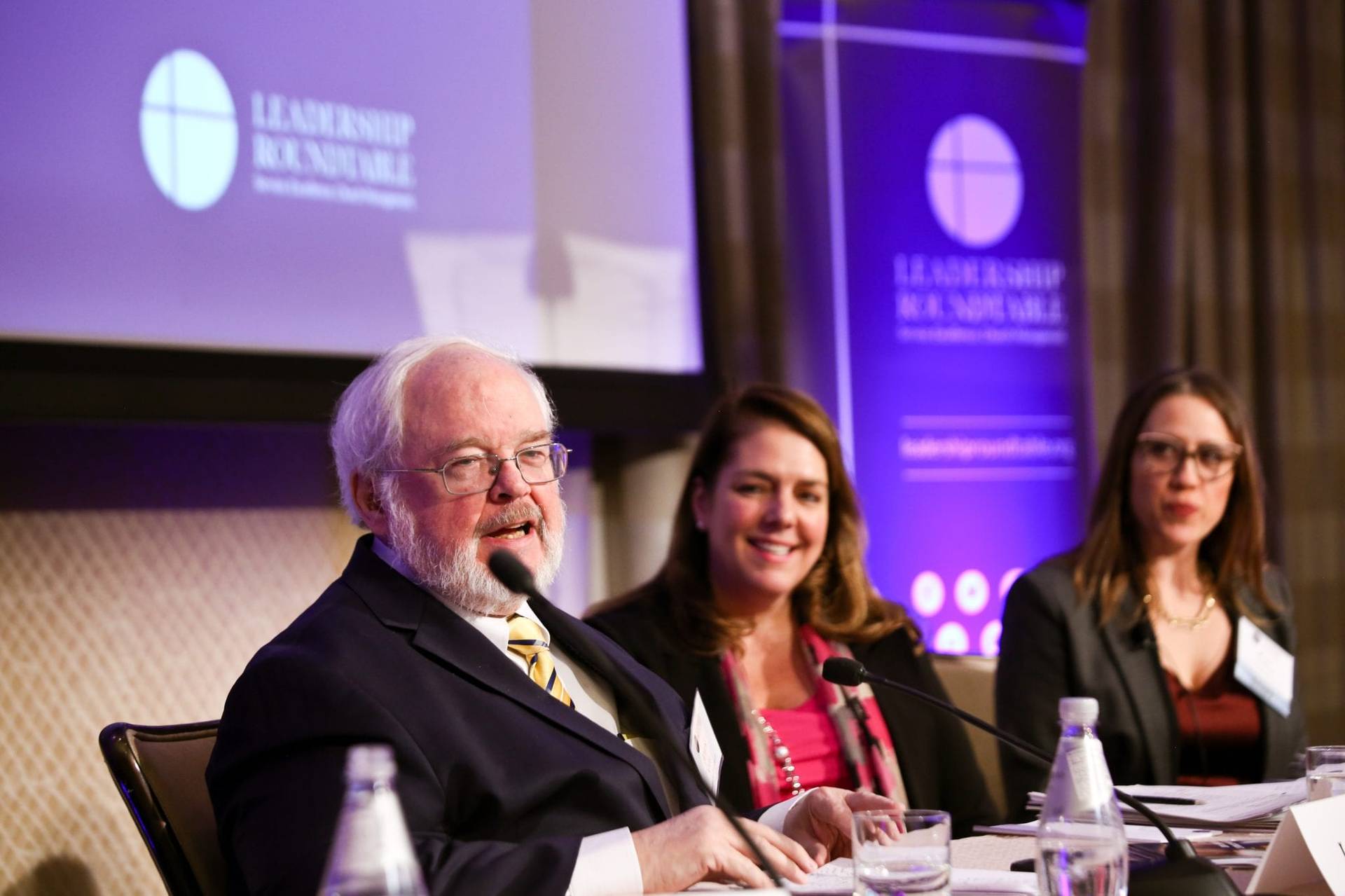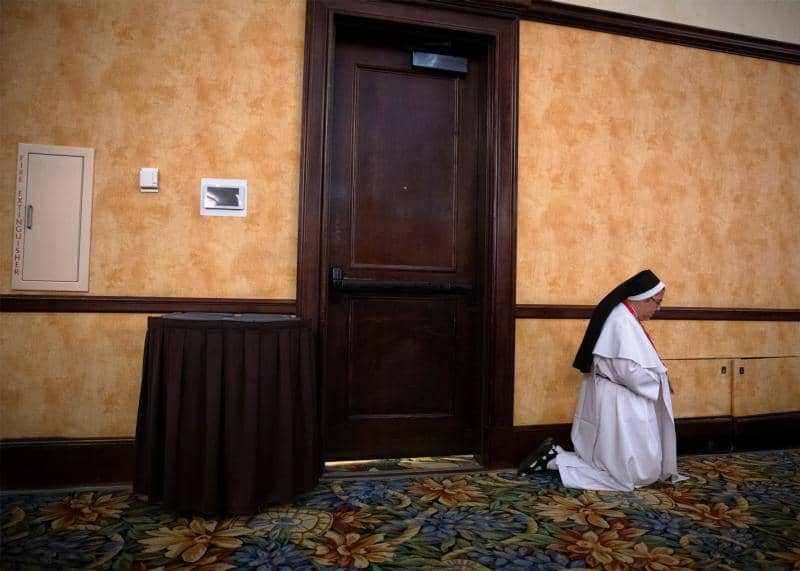ROME – Though Pope Francis’s high-stakes Feb. 21-24 summit on clerical sexual abuse has not yet yielded any major policy moves, one message was clear throughout the four-day gathering: The problem is global, and no one should leave thinking it’s not a concern in their own backyard.
Francis himself in his Sunday Angelus address said abuse is “a widespread problem on every continent,” and because of this, he wanted bishops throughout the world “to face it together, in a co-responsible and collegial way.”
Since the beginning of the abuse scandals three decades ago, they’ve sometimes been pegged as primarily an “American” or “Western” problem by Church leaders in countries where the crisis has yet to erupt. Cracking down has been met with a certain level of resistance by prelates in these regions who see the problem as secondary in comparison to other, more pressing issues.
However, speakers this week challenged that notion with direct, bold language.
During Friday’s morning session, Cardinal Oswald Gracias of Mumbai, India, a member of the pope’s council of cardinals and one of four members of the summit’s organizing committee, said, “No bishop may say to himself, ‘This problem of abuse in the Church does not concern me, because things are different in my part of the world.’”
“This, brothers and sisters, is just not true,” he said. Acknowledging that “we in leadership roles did not do enough,” Gracias said the “entire Church must take an honest look [and] act decisively to prevent abuse from occurring in the future, and to do whatever possible to foster healing for victims.”
Similarly, Sister Veronica Openibo of Nigeria, one of just three women tapped to speak at the summit, reinforced the message Saturday, telling the 190 participants that “probably like many of you, I have heard many Africans and Asians say that this is not our issue in countries in Africa and Asia.”
“It is a problem in Europe, the Americas, Canada and Australia,” Openibo said, adding that other problems in the region such as poverty, illness, war, and violence “does not mean that the area of sexual abuse should be downplayed or ignored…The Church has to be proactive in facing it.”
Prelates did not mince words, vocalizing the Church’s failures to properly address the abuse crisis and calling for the “humility” to recognize these errors and to repent.
In his homily for the closing Mass, Archbishop Mark Coleridge of Brisbane said the Church’s leaders have not always shown God’s mercy to victims of sexual abuse.
“We have preferred instead the indifference of the man of earth and the desire to protect the Church’s reputation and even our own. We have shown too little mercy, and therefore we will receive the same, because the measure we give will be the measure we receive in return. We will not go unpunished, as David says, and we have already known punishment,” he said.
Francis echoed the message in his closing speech for the summit, promising that abuse cases from here on out would be “faced with the utmost seriousness.”
“Indeed, in people’s justified anger, the Church sees the reflection of the wrath of God, betrayed and insulted by these deceitful consecrated persons,” he said, adding that “it is our duty to pay close heed to this silent, choked cry.”
In an interview with Crux ahead of the summit, Coleridge said the time for words in the abuse crisis “is well and truly past…What we need now is action.” The crisis, he said, will require a “Copernican revolution” in Catholic culture with survivors, rather than clergy, driving the Church’s response.
Victim reactions to the summit have been a mixed bag.
Some have voiced hope that with a global summit, the world’s bishops might finally all be on the same page about the severity of abuse, while others have said the discussion fell short of zero-tolerance.
Speaking with journalists earlier this week, Peter Isely, an abuse survivor and co-founder of the U.S. branch of the Ending Clergy Abuse (ECA) advocacy group, said the 21 “points of reflection” Francis provided participants during the summit’s first session Thursday morning did not go far enough.
Isely, who was one of 12 survivors who met the summit’s organizing committee Wednesday, said the pope’s suggestions “don’t go anywhere, they’re not moving the line anywhere.”
“There’s nothing different in here than there was yesterday. Where is it in these points that if you’re a bishop or a cardinal and you’ve covered up child sex crimes, that you’re going to be removed from the priesthood or that any action will be taken against you?” he said, adding that “that’s not in here at all, so that’s not accountability and that’s not zero tolerance.”
However, Chilean survivor Juan Carlos Cruz was more optimistic.
Cruz praised Francis’s efforts to amend the Chilean abuse crisis, which last spring prompted all the country’s bishops to submit their resignations, and voiced hope for the outcome of the summit, which he sees as a positive step forward.
Discussion inside the summit touched on defrocking priests accused of abuse and publishing the names of priests accused of abuse, which were brought up both by Francis in his 21 points and by Maltese Archbishop Charles Scicluna, a leading authority in the protection of minors in the Catholic Church.
Neither were in favor of publishing the names of all accused clergy, arguing that for an allegation to go public, it must be found to be “credible” or “substantiated.”
There was also insistence from several prelates that once a priest is found guilty of abuse, “laicizing” or “defrocking” them is not always the right answer, especially when the abuser is older with no one to care for and is no longer a harm to society.
While in the words of Gracias “no easy or quick solution” will be reached, words that have been echoed by many other prelates participating in the summit, Jesuit Father Federico Lombardi, the former papal spokesman who moderated this week’s discussion, said three steps are ready to be taken.
In a Feb. 24 statement, Lombardi said there will soon be a new legal document on “the protection of minors and vulnerable persons” within the Vatican City State. The Vatican’s Congregation for the Doctrine of the Faith will also shortly be issuing a vademecum, or handbook – the first of Francis’s 21 suggestions – on the protection of minors, which will serve as a resource for bishops to understand their responsibilities.
In addition, regional “task forces” will be created that will be composed of “competent persons” who will assist episcopal conferences and dioceses struggling in the area to draft policies and produce initiatives for the protection of minors.
Survivors and advocacy groups expressed disappointment with the outcome, with an Italian network saying that rather than “zero tolerance” the summit delivered “zero credibility,” and an American watchdog group lamenting what it called “oddly negligible results.”
For U.S. bishops, the immediate follow-up will likely mean resuming discussion on accountability measures for prelates accused of abuse and/or cover-up after the Vatican last requested that they wait to draft new protocols until this week’s summit.
Cardinal Daniel Di Nardo of Galveston-Houston, president of the U.S. bishops’ conference, told Crux that after the summit, he expects American prelates to adopt new accountability measures for the cover-up of abuse at their June meeting.
RELATED: U.S. cardinals expects new abuse accountability measures in June















